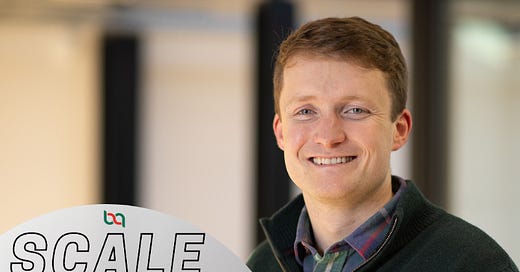Sturgeon Capital: Powering the Digital Transition In Emerging Markets
The fund makes concentrated bets on regions where most investors are hesitant to invest.
We recently caught up with Robin Butler, partner at Sturgeon Capital, a London-based VC investing in early-stage startups in nascent venture ecosystems such as Uzbekistan, Kazakhstan, Egypt and Bangladesh — nations that draw relatively less financial investment and few professional private market investors.
Robin has spent the last 10 years living, working and studying in emerging markets, including a degree in Arabic and Middle Eastern History, time spnt living in Iran learning Farsi, and the last five and a half years working for Sturgeon Capital in Central and South Asia. This somewhat eclectic, atypical background for a VC brings a different perspective on the opportunity set in the countries where Sturgeon invests, as well as a passion for delivering a positive impact through its portfolio investments.
Robin is responsible for the deal sourcing, due diligence and investment side of the business at Sturgeon, spending two-thirds of his time traveling.
Sturgeon Capital’s investments in Bangladesh include gozayaan and as lead investor in Shikho’s recent round.
In this episode, we discuss:
Sturgeon’s role in accelerating the digital transition in emerging markets such as Bangladesh
The future of digital transformation and its impact on businesses and society
The role of venture capital in promoting digital transformation
The cultural understanding of investment decision-making and his strategies for making successful early-stage investments
Listen on Spotify.
💼 Actionable insights
If you only have a few minutes to spare, here's a summary of our key takeaways and highlights from the episode:
Having a comparable from another market that has been successful at scale helps in understanding what this opportunity can or could look like in the next 5-10 years. But just saying we’re going to be ‘the x of Bangladesh’ or ‘the y of Uzbekistan’ doesn’t necessarily mean that it’s the right thing to do. You have to understand why the B2B distribution model in a market like Kazakhstan works as it does. And actually, does it work? Are people happy with the solution they have? What we often try and look for is not just how are you going to disrupt this industry, but how can you enable it? How can you be a sort of digital partner for its transformation?
Bangladesh is sort of unlucky because it gets a bit lost geographically. India sucks most of the money for South Asia. Pakistan gets sucked into the MENA region because of its size. Bangladesh doesn’t fall in Southeast Asia. Besides, Southeast Asia has big markets like Indonesia which sucks most of the capital. More needs to be done on the PR side for Bangladesh and that’s something we’ve been trying to do as well like writing blog posts and talking with our investors about Bangladesh.
From a founder’s perspective, you’ve got to contextualize the opportunity: What is Bangladesh, what’s going on there and what’s the problem there? Assume that the investor doesn’t know very much about the economy and the society where you’re coming from. But, also contextualizing in the sense of what are comparable markets in terms of dynamics and structure, and businesses that could be found in other markets. So, if you’re building a business in Bangladesh that was built in Indonesia five years ago, putting yourself in that context when you’re talking to an investor from Singapore is necessary. They might know that company and you should explain that the market and the opportunity are here but you’re not going to do it the way the Indonesian company did it. You’ll do it the way based on how things are done in Bangladesh.
✨Want access to high-quality deal flow from a community of professional investors and exclusive events for angel investors? Please apply to be a member: https://forms.gle/4ZcMPURxDEWV98dv5
✨To get public updates on Bangladesh Angels, please join our substack.





